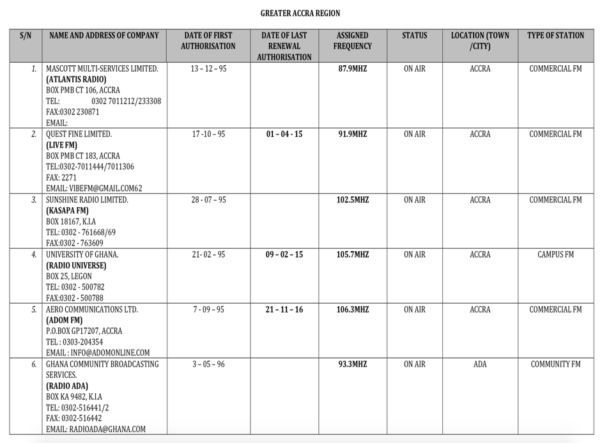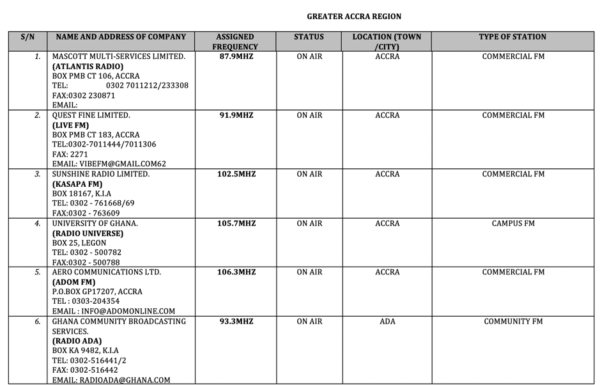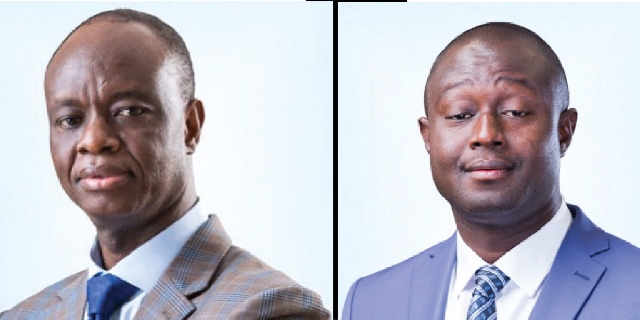It has been 51 days since the Media Foundation for West Africa (MFWA) formally wrote to the National Communications Authority (NCA) to request for information under Ghana’s Right to Information (RTI) Law.
The requested information has not been received because the NCA is demanding a whopping GHC 2,000 before it releases the requested public information. The Authority says, the amount is to enable it generate what it calls “the Search Report.” In social media publications, the NCA’s Acting Director of Legal Affairs, Dr. Poku Adusei, said obtaining the requested information will require “research and sweat” on the part of the NCA hence the demand for as much as GHC 2000 by the Authority.
In Part 1 of this series, we restated the information we requested. We then provided initial evidence to show that the NCA’s claim that the information requested required “research and sweat” on its part was far from the truth and reality.
In this second part of the series, we provide additional evidence to further expose why the NCA’s claim that the MFWA’s request required them to do research to obtain the requested information, is a grand deception.
Apart from our request for the list of radio stations the NCA had shut down, our two other requests were about the list of Authorised FM and TV stations (indicating dates of first authorisation and dates of last authorisation renewals) in the country as of the second quarter of 2020.
As revealed in part one of this series, the NCA has on its website, the list of authorised FM and TV stations in the country as of second quarter 2020. The information provided by the NCA in that data does not, however, include the critical information on dates of first authorisation and dates of last authorisation renewals of the stations.
The question that arises is, is it the provision of those dates that the NCA says will require research on their part? The available evidence will certainly not support such a position. This is because, published data on the NCA’s website for the same period last year (second quarter 2019) include company names and addresses, dates of first authorisation and dates of last authorisation renewals of stations, frequencies, location, status and type.
Indeed, the Authority’s published report (on its website) even as of the fourth quarter of 2019, include columns containing the critical information on first dates of authorisation and dates of last authorisation renewals. Below is screenshot of the first page of the NCA’s published data for Greater Accra for the last quarter of 2019 with columns for the dates.

In fact, similar published data by the Authority for 2018 and even 2017, as available at this link, all include columns containing the vital information on first dates of authorisation and dates of last authorisation renewals of radio stations.
So, as the above data from NCA’s website shows, the Authority has data containing dates of first authorisation and dates of last authorisation renewals of authorised FM and TV stations as of the end of 2019. So why is the authority saying it will have to engage in research to find the same information as of June 2020 and for which research the MFWA must pay as high as GHC 2,000?
Indeed, if the NCA’s published data for 2020 included information on the dates of first authorisation and dates of last authorisation renewal as they had done since 2017, there will not have been the need for us to officially request for the same information. It would have been available on the NCA’s website just as the other reports.
But as can be seen from the screenshot below of one page of the NCA’s 2020 second quarter data, the vital information of dates of first authorisation and dates of last authorisation renewals have been removed.

The key questions that arise from the NCA’s claim of having to do research to obtain the information requested are: Is it that the NCA did not record the dates of authorisation for new frequencies it issued between January and June 2020? Or is it that they did not record the dates for authorisation renewals made between January and June 2020? If the NCA did record those dates, then why would they have to do research to obtain those dates and for which research the MFWA has to pay NCA as much as GHC 2,000?
As we have established, the NCA has all the information we requested for – company names, location, frequencies, operational status, dates of first authorisation and dates of last authorisation renewals. We did not ask that they should print or make photocopies for us. We did not ask for the information to be put on pen drives or any other formats. We asked for soft copies to be sent via email. So why will the authority be asking the MFWA to pay as high as GHC 2,000 to be given information they already have and to be sent via email?
The other key question to ask is: Why the change? If the NCA has, since 2017, included information on dates of first authorisation and dates of last authorisation renewals, of authorised FM and TV stations in its publications, why did they remove that key information from its report of second quarter 2020? Why the change? Could it be related to our request for the list of radio stations they shut down and the transparency around the shutdown of the stations?
As would be recalled, apart from the list of authorised stations with the authorisation and authorisation dates, our other request is the list of radio stations that the NCA had shut down in the country in line with the spectrum audit exercise. Could that be what will be requiring “research and sweat” on the part of the NCA to produce for which we should be paying the GHC 2,000? We don’t know.
In Part 3 of the series, will respond to these questions and more revelations.





